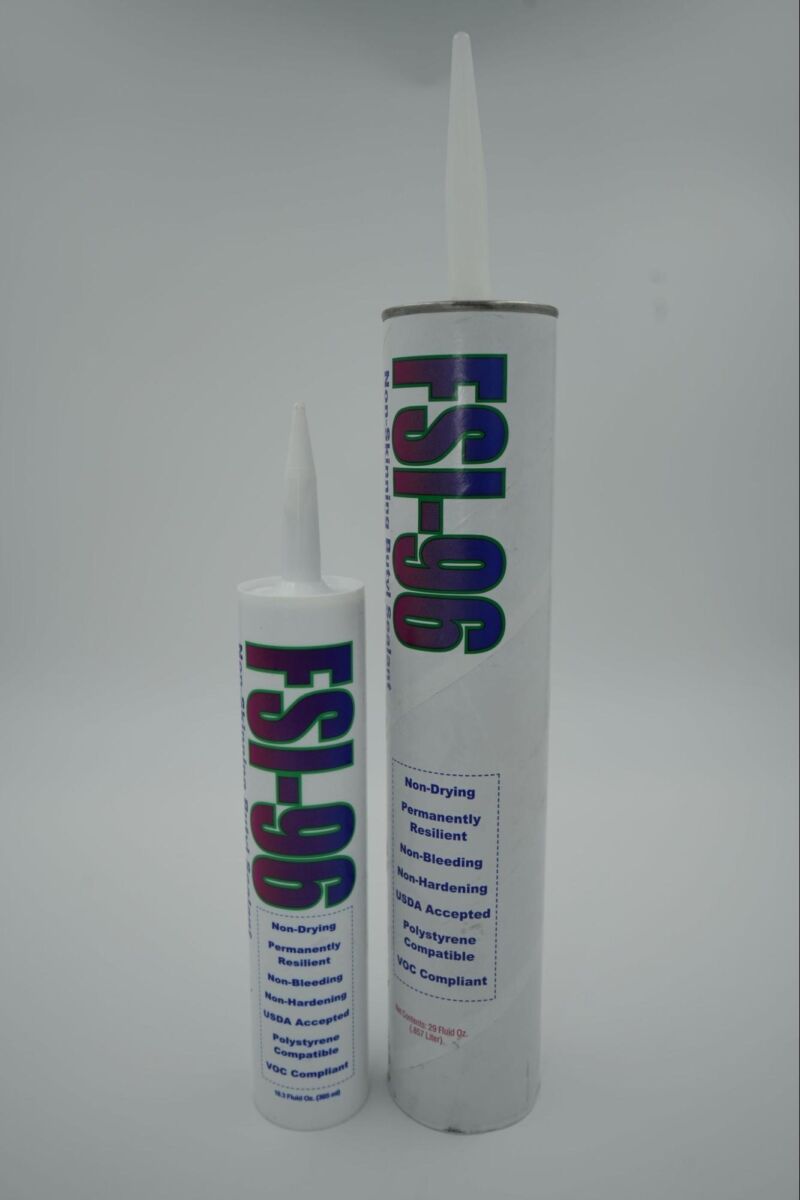
Are you in search of a dependable sealant to protect against extreme weather? Look no further than FSI-96 Butyl Rubber Sealant! It's designed specifically for insulated metal panel and metal building construction, plus other industries that require robust protection. It has superb stickiness for forming long-lasting bonds on all surfaces - which makes it perfect for sealing areas exposed to water or any liquids.

In this article, we will uncover why FSI-96 is ideal for sealing applications, detail its numerous benefits, and inform you on where to purchase it.
What Are Butyl Rubber Sealants?
Butyl rubber sealants are a class of adhesives crafted from butyl rubber, which is an artificial material constructed by bonding together two key elements—isobutylene and isoprene. This resilient and waterproof material is ideal for fabricating seals, gaskets and other components that must endure extreme temperatures or harsh environmental conditions. Butyl rubber sealants also provide excellent protection against:
- Corrosion
- Abrasion
- Vibration
Butyl rubber sealants provide the perfect solution for sealing or caulking needs in industries such as construction, automotive, aerospace, and beyond.
Skinning vs. Non-Skinning Butyl Sealants
Butyl sealants, which are non-skinning, have remarkable adhesive and sealing properties due to their synthetic rubber composition. Unlike skinning butyl sealants, which form a skin or crust on the surface as they cure, non-skinning butyl sealants remain tacky and pliable, which allows them to conform to irregular surfaces and maintain a strong seal over time.
Non-skinning butyl sealants boast a range of advantages:
- They're simple to apply.
- They form secure bonds on uneven surfaces.
- They remain impervious to moisture and the weather.
In addition, these sealants have an exceptional capacity for maintaining their bond strength over time. They are also relatively inexpensive compared to other types of sealants, which makes them a popular choice for a wide range of applications.
Why Are They Used?
When it comes to safeguarding joints, seams, and other surfaces from the effects of water or moisture, non-skinning butyl sealants are the most reliable choice. They have excellent waterproofing abilities that remain unaffected even when submerged in liquids - so they are ideal for construction and automotive applications where different materials such as metal, glass, and plastic need to be joined together securely.
FSI-96 Butyl Rubber Sealant
What is FSI-96?
FSI-96 butyl sealant is commonly used in the construction industry for sealing joints, gaps, and seams in various building materials. It is made of a synthetic rubber called polyisobutylene and it is known for its excellent adhesion, flexibility, and durability. It has been specifically formulated for use in insulated metal panel and metal building construction.
Specific applications include:
Sealing the Base Track to the Slab
In a typical insulated metal wall panel installation, a base track is attached to the concrete slab and the wall panel is placed in the track. Two beads of FSI-96 butyl sealant would be placed between the wall panel and the bottom of the base track as well as between the wall panel and the sides of the base track.
Polyethylene Vapor Barrier Sheet
If a vapor barrier is required, FSI-96 would be used to seal the area where the layers of poly overlap to prevent water intrusion.
Intermediate Support Structures
Some buildings will have horizontal frame supports between the base and the top. FSI-96 will be applied to these surfaces as well.
Panel Top Cap and Panel Joints
Butyl sealant is used on the corners of the base track to seal the corner molding to the structure. Where each panel meets, a trim strip is applied for aesthetics as well as waterproofing. Butyl sealant is applied behind the trim piece. At the top of the wall panel, a final cap holds the panel in place, and butyl sealant will be applied to the front and rear of the cap to seal this area.
Advantages:
- FSI-96 has phenomenal tackiness for permanent bonding to all surfaces
- Non-drying and non-bleeding
- Non-hardening
- Gunnable in all working temperatures
- Has USDA approval for use in meat and poultry plants.
- Available in 11 and 30-ounce tubes as well as 5-gallon pails.
FSI-96 is often used in the construction of walk-in freezers. Butyl sealants are known for their excellent adhesion, flexibility, and ability to maintain a strong seal in cold temperatures. These properties make them well-suited for use in the construction of walk-in freezers, which require a strong, durable seal around doors and other openings to maintain their low temperatures.
FSI-96 Has Been Modified to Reduce Webbing Characteristics and Improve Extrusion
Excessive Webbing
Webbing can occur in butyl sealants due to their high cohesive strength and low adhesion strength. When the sealant is applied and then pulled away from a surface, it can stretch and form strings or webs of material. This can be particularly problematic in applications where the sealant is visible, such as in automotive or architectural applications. FSI-96 has been modified to reduce this problem.
Poor Extrusion
Extrusion is the process by which the butyl sealant is forced out of its container, such as a tube or cartridge, through a nozzle or applicator. Improving extrusion in butyl sealants refers to the process of enhancing the sealant's ability to flow out of its container smoothly and evenly during application. FSI-96 has been modified to reduce this problem and permit a smooth flow during application.
Fastener Systems is the Place to Buy FSI-96 Non-Skinning Butyl Caulk
Fastener Systems is an established and trusted provider of high-quality butyl and urethane sealants. Our product lineincludes a wide assortment of construction fasteners, accessories, spray foam and other components.
Contact us today for a quote or to receive our catalog!

